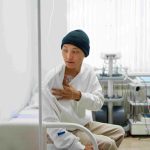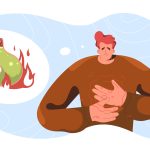Cancer doesn’t just affect one part of the body—it impacts the whole person. While most people focus on medical treatments like surgery, chemotherapy, and radiation, one often overlooked aspect of care is nutrition. Malnutrition can quietly creep in, affecting up to 70% of people with cancer at some point during their journey (1). Left unaddressed, it can lower treatment success, slow recovery, reduce quality of life, and even shorten survival (2). That’s why detecting malnutrition early—and acting on it—is not just important. It’s lifesaving.
Malnutrition can happen at any stage of cancer and during any type of treatment. Whether you are undergoing surgery, chemotherapy, radiation, or immunotherapy—or even if you’re in a watch-and-wait phase—cancer-related inflammation, side effects like nausea or pain, and emotional stress can all reduce appetite and food intake (2). This makes early and continuous nutritional support essential.
Malnutrition Isn’t Inevitable—It’s Treatable
Many believe that losing weight or losing appetite is just part of having cancer. But unintentional weight loss is not something to brush off—it’s often the first sign of undernutrition and should never be ignored. When your body starts breaking down muscle and fat to survive, it becomes weaker and less able to cope with the demands of treatment. This can lead to more treatment side effects, more hospital visits, and lower chances of completing therapy as planned.
Loss of appetite is another red flag. It may seem like a normal response to illness, but it is a warning sign that the body is not getting enough nourishment. Instead of waiting for it to worsen, this is the moment to act. Early nutrition intervention can help prevent further decline and support the body through the challenges ahead.
Sometimes, malnutrition is not caused only by the illness itself. Unsupported food beliefs and unnecessary dietary restrictions can also lead to poor intake. For example, some people avoid protein, dairy, or certain fruits based on myths or misinformation, thinking they may ‘feed’ cancer or interfere with treatment. In truth, these foods are often essential for maintaining strength and supporting the body through therapy. It is important to get your information from qualified health professionals and not from hearsay or unverified sources.
Know the Signs: Early Action is Key
How do you know if malnutrition is setting in? Here are some early signs to watch for:
- Unintentional weight loss (even 2–3 kg over a few weeks)
- Eating less than usual for more than a few days
- Feeling full quickly or losing interest in food
- Clothes or jewelry becoming loose
- Feeling more tired or weak than normal
If you or your loved one notices these changes, speak to a dietitian or healthcare provider immediately. The earlier nutrition care begins, the more likely you are to improve outcomes and maintain strength.
Food is Fuel: Eating Well During Difficult Times
Eating may be difficult due to changes in taste, mouth sores, nausea, or fatigue. But there are simple strategies that can help:
- Eat small meals and snacks more often—every 2–3 hours if possible
- Add high-energy foods like peanut butter, sesame paste, cheese, or full-cream milk to meals
- Use oral nutrition supplements if recommended by your dietitian
- Make eating enjoyable—soft lighting, pleasant smells, and the company of a loved one can help
Sometimes, eating by mouth is no longer enough. In such cases, tube feeding (enteral nutrition) or intravenous feeding (parenteral nutrition) can be discussed. Tube feeding delivers liquid nutrients directly into the stomach or small intestine, while intravenous feeding provides nutrients through a vein. Both methods are safe and effective ways to nourish the body when regular eating is not possible.
Nutrition is Part of the Treatment Plan
Good nutrition is not an add-on—it is a fundamental part of cancer care. Working with a qualified dietitian, especially one experienced in oncology care, ensures that your nutritional needs are met in a safe, tailored, and compassionate way. A dietitian doesn’t just talk about food; they help you manage symptoms, overcome eating challenges, and stay strong through every phase of treatment.
If you or someone you love is living with cancer, do not wait until weight loss or fatigue becomes severe. Ask to see a dietitian early. Early nutrition intervention can make a meaningful difference—not just in how you feel day-to-day, but in your treatment outcomes and long-term recovery.
Nutrition matters. And you deserve the strength it brings.
References:
- Lau SS & Vanoh D. Malnutrition among Cancer Patients: Role of Social Support. Malaysian Journal of Public Health Medicine 2022 April: 22;182-192.
- Arends J. Malnutrition in cancer patients: Causes, consequences and treatment options. European Journal of Surgical Oncology 2024 May;50(5):107074.






